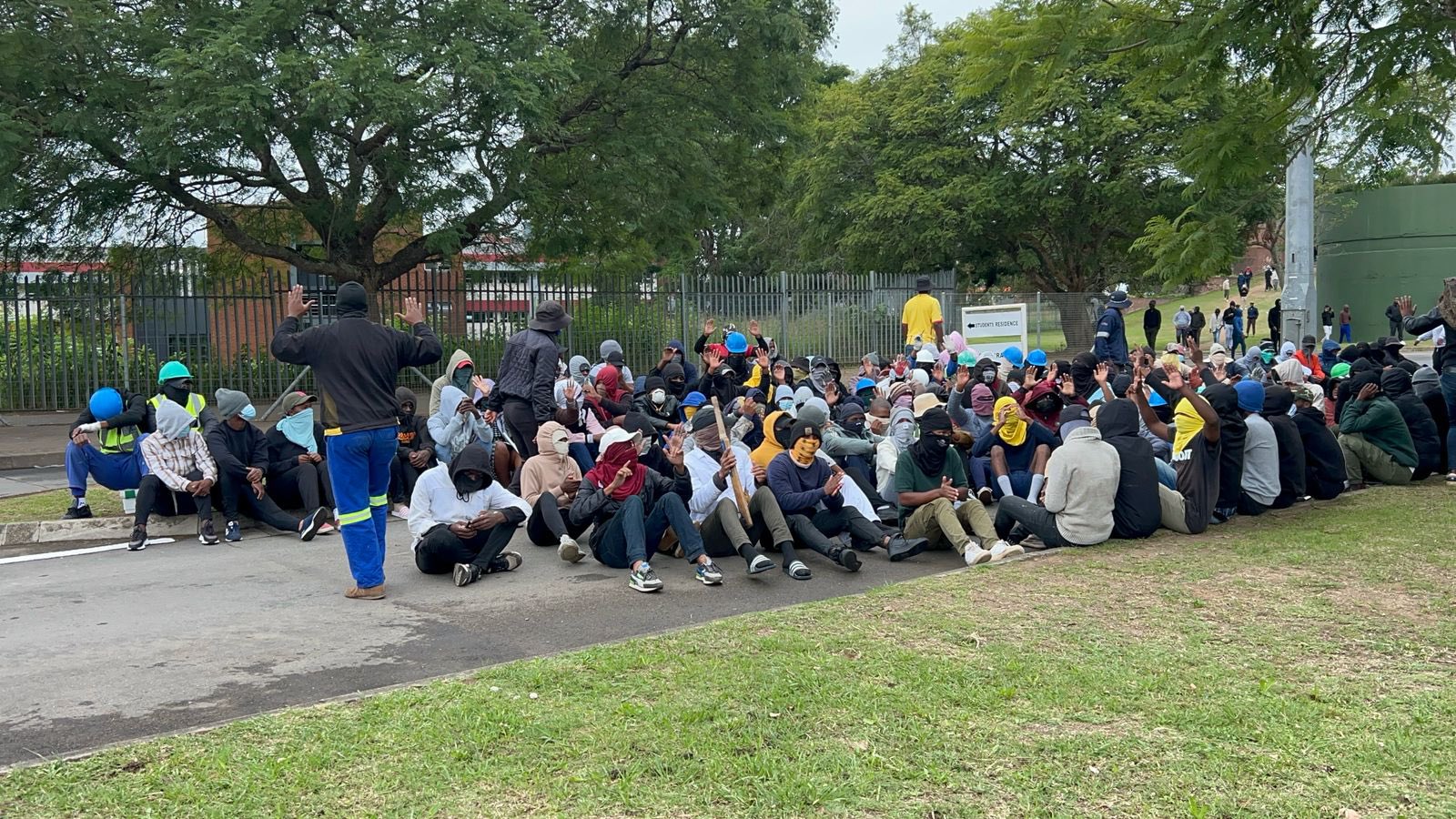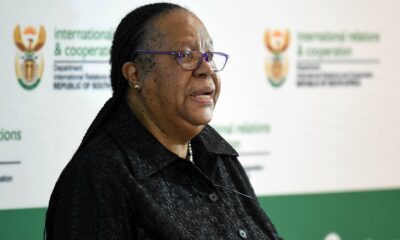News
Justice in the Crosshairs: Outrage Grows After WSU Murder Accused Granted Bail

The Walter Sisulu University (WSU) community finds itself at a painful crossroads. The tragic killing of student Sisonke Mbolekwa has not only sparked heartbreak, but also ignited a fiery protest movement after the Mthatha Magistrate’s Court granted bail to the man accused of her murder.
Manelisi Mampane, facing charges of murder, attempted murder, and illegal possession of a firearm, walked free on bail—sparking fury among students and political activists who say the justice system has failed the very people it’s meant to protect.
In the early hours of Wednesday, anger spilled onto the streets. WSU students shut down the N2 highway in protest, lighting tyres and blocking the road near the university’s Mthatha campus. Dressed in balaclavas and wielding makeshift shields, students clashed with police, who responded with rubber bullets and tear gas.
For many, it wasn’t just about one case—it was a cry against what they see as a system that consistently lets down black youth, especially when the violence happens on campus.
Parliament Calls for Calm, But Students Want Justice
In Parliament, Tebogo Letsie, chairperson of the portfolio committee on higher education, addressed the unrest. While he acknowledged students’ grief, he warned that destructive protest was not the answer.
“While we understand the deep pain and frustration, resorting to violent protests and damaging property is not the answer,” said Letsie. He urged students to act within the law and asked the university to ensure that Mampane does not return to campus.
But for many students, the official responses have felt too little, too late. They point to a deeper pattern of negligence, especially when it comes to gender-based violence and campus safety.
EFF Youth Command Launches Petition, Demands Accountability
Meanwhile, the Economic Freedom Fighters Youth Command (EFFYC) took their outrage online, launching a petition on Change.org demanding the bail decision be overturned. They described the magistrate’s ruling as a “betrayal of justice” and warned of the message it sends: that the lives of black students are dispensable.
The EFFYC raised serious procedural concerns, including the unexplained shift of the case from Schedule 6 to Schedule 5—a move that made securing bail far easier despite the severity of the charges. They also pointed out gaps in how the court handled the accused’s supposed “safe house” address, which was unknown even to the investigating officer.
“Bail for someone who allegedly brought a gun to a university—a gun-free zone—opened fire on unarmed students, and now walks free? That’s more than just an injustice. It’s dangerous,” said a WSU student protester, who asked not to be named.
Public Trust in the Courts on Shaky Ground
The WSU case has amplified a broader crisis of confidence in South Africa’s justice system. Many see it as sluggish, inconsistent, and detached from the lived realities of the public—especially young, black citizens.
The EFFYC voiced what many students are feeling: “When courts ignore public concern, people will start to take justice into their own hands.”
The organisation also questioned why another magistrate suddenly took over the case mid-proceeding, and why delays and unexplained interruptions marred the bail hearing.
Another Student Shooting Looms in the Background
Complicating matters further is a separate but related case: the shooting of 20-year-old medical student Sethu Ndamase, allegedly by university security in March. His bail hearing was scheduled the same day as Mampane’s.
For students, it feels like déjà vu—and a warning sign. They fear the same “errors” will be repeated unless institutions take real steps toward accountability and reform.
A Call for Unity, Not Silence
As the anger simmers and the fight for justice intensifies, the EFFYC and WSU student leaders are calling on black youth across the country to stand in solidarity—not just for Sisonke Mbolekwa, but for every student whose life has been cut short or put in danger by a system too slow to act.
“We are not just protesting for Sisonke,” said another student leader. “We’re fighting for all of us—for a future where going to university doesn’t feel like a risk to your life.”
Walter Sisulu University is more than just a campus. It’s a symbol of struggle, resilience, and the pursuit of knowledge. But today, it’s also a battleground—between the promise of justice and the painful reality of its absence.
In a country still healing from wounds of systemic inequality, this case is about more than one accused or one court ruling. It’s about whether South Africa can live up to its constitutional ideals—and whether our students can feel safe chasing their dreams.
{Source: The Citizen}
Follow Joburg ETC on Facebook, Twitter , TikTok and Instagram
For more News in Johannesburg, visit joburgetc.com



























